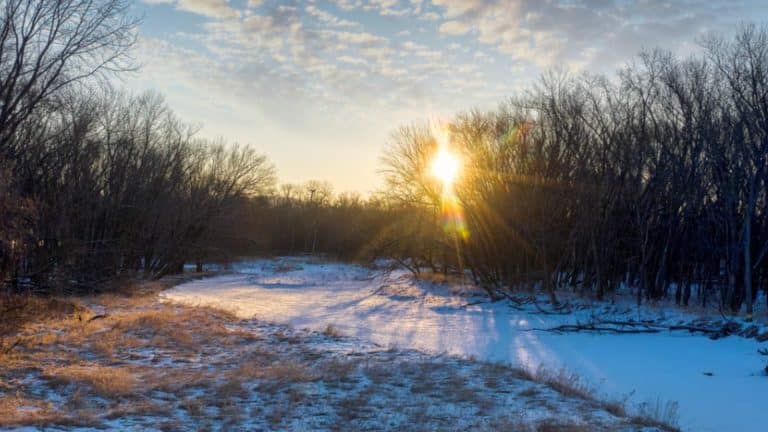This post – written by James Nolan, Associate Professor at Georgia Gwinnett College – originally appeared on the Union of Concerned Scientists’ blog The Equation on June 17 and can be viewed here.
 I’m a biochemist by training, but my family’s leap into Electric Vehicle (EV) driving was not entirely a reasoned scientific choice, initially. We have always been energy-conscious, even before climate change was on our radar. We have always tried to live near our workplaces to save fuel and time. When hybrid vehicles came on the market, we did not seriously consider buying one, because it did not make economic sense for us; our savings on fuel would never match the difference in up-front price of a hybrid at that time. The BP oil spill on April 20, 2010 changed the equation for us.
I’m a biochemist by training, but my family’s leap into Electric Vehicle (EV) driving was not entirely a reasoned scientific choice, initially. We have always been energy-conscious, even before climate change was on our radar. We have always tried to live near our workplaces to save fuel and time. When hybrid vehicles came on the market, we did not seriously consider buying one, because it did not make economic sense for us; our savings on fuel would never match the difference in up-front price of a hybrid at that time. The BP oil spill on April 20, 2010 changed the equation for us.
We had lived in New Orleans before Katrina and were heartbroken at the damage; we wanted to stop buying oil (we still haven’t been to BP since). We wanted to cut our use of oil and carbon emissions further, even if the dollars and cents didn’t work for us. After test-driving a Nissan LEAF EV, we were sold. An EV could cover most of our driving needs without using any oil. We are not typical early adopters, but in this case we were convinced it was a good idea and wanted to spread the word by setting an example.
EV driving near my home in suburban Atlanta has led to numerous parking lot conversations with people who had never seen an EV and has been a great opportunity to meet others with similar interests. I met members of the EV Club of the South, part of a national network of local groups of EV enthusiasts, at the EV test drive event. The club has been in existence since 1999, when the original members lost their GM EV-1s. I joined soon after we purchased and began to participate in club demonstrations at parades, Earth Day, National Plugin Day, and similar events. The added visibility may be working; in three years, the Atlanta metro area has become the second largest EV market in the country.
Of course, EVs are only as clean as the power plants that supply their electricity; I started to look to Union of Concerned Scientists for answers on the real benefits of EVs compared to hybrids and conventional vehicles in reducing carbon emissions. I have to admit that the information was not exactly what I wanted to hear, at least at first. In the Southeast in 2012, local utilities were producing over half their power from coal-fired plants, so my EV was emitting close to the same CO2 as a Toyota Prius (though producing the equivalent CO2 as a hybrid getting 46 mpg isn’t a bad starting point!).
It turns out that our EV has gotten cleaner in the last couple of years, as the local electric grid has incorporated more renewables and less coal. If we stay on track, EVs powered on our regional grid could be cleaner than even the best hybrids in the coming years. In addition, we have made our corner of the grid even greener by buying renewable energy credits to offset all of our carbon usage.
While it’s true that EVs will get cleaner over time, the real good news for me was the discovery of UCS as a source of scientific resources for education about climate change. I joined and started using UCS information in my science class teaching. UCS continues to update their resources and study who is a good fit for owning an EV. Membership in the EV Club and UCS has led to alliances with other groups, such as the Southern Alliance for Clean Energy (SACE). SACE works to support sustainable energy in the Southeast. The EV Club has worked with SACE and UCS to raise awareness on protecting Georgia’s EV tax credit and sustainable energy initiatives under consideration by the Public Service Commission and the state Legislature. By working together, there is hope for a more sustainable future.
My journey to UCS did not start as the reasoned, scientific process it might have been. It started as an emotional leap, but the information from UCS has shown that it turned out to be a big step in the right direction. It has opened avenues to the facts about global warming and clean vehicles, information on what I can do about it, and resources to share with others. It has also opened channels to others working towards the same goals of changing our actions and policies to protect the planet for our generation and those who follow.
About the author: James Nolan is an Associate Professor of Biology at Georgia Gwinnett College. He earned a Ph.D. in Biochemistry at Duke University. He is Secretary of the EV Club of the South, was Co-Organizer of the metro Atlanta National Plugin Day event in 2013, and is a member of the UCS Science Network. He lives in Lawrenceville, GA and you can find him on twitter at @jamesnola.

